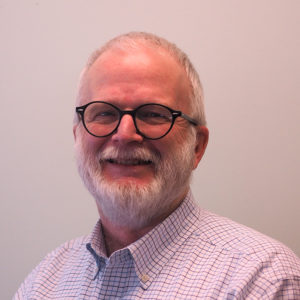
Rick Morse
On July 31, 2019, Rick Morse will enter a new phase of his more than 44 years of ministry with the Christian Church (Disciple of Christ). On that day, he will retire from Disciples Church Extension Fund (DCEF) where he has served as Vice President of both DCEF and Hope Partnership for Missional Transformation for the last dozen years. A nationally recognized church developer, and one-time leader of the Disciples new church movement, Rick first joined DCEF in 2001 when he was asked to direct the New Church Ministry (NCM) portion of the 2020 vision by then-President Jim Powell. He moved his family of five from Kirkland, Wash. to Greenwood, Ind. to do so, leading a team that established semi-annual training programs that prepared 120 new church planters a year. During the same period, that team successfully applied for and received $2 million in Lilly Endowment grants to support a fledgling NCM coaching program, having shown such resources substantially increase new church sustainability.
In 2007, Rick was named DCEF’s Vice President of New Initiatives where he continued to direct New Church Ministry while also being engaged in the development of Hope Partnership for Missional Transformation. New Church has now planted more than 1,000 new Disciples congregations while Hope Partnership has provided transformational services to more than 1,300 congregations in seven denominations.
“I really believe in the transforming power of congregations when they connect people to God’s mission,” Rick says. “And, I’m grateful to have served in this way.”
He intends to consult part-time on Hope projects as a contractor, once he returns from a trip to Spain to walk the Camino de Santiago.
Following college, Rick served two years as Minister of Youth at North Hill Christian Church in Spokane, Wash. His intentional participation in the life of the Church began at San Francisco Theological Seminary where he attended from 1977 to 1980 earning a Masters of Divinity. He then served as Pastor of First Christian Church of North Coeur d’Alene, Idaho, from 1979 to 1984. During his time there, Rick helped start seven non-profit organizations, including Trinity Group Home for those suffering with mental health issues, and the Kootenai County Task Force on Human Relations – a group largely responsible for introducing legislation that addressed white supremacist activities by making racial and religious harassment a felony.
In 1982, Rick was persuaded to consider becoming a church planter by Ray Brown, then Vice President of Church Extension with whom he had worked on a capital campaign.
“I’d considered taking the leap before, but totally underestimated the effort needed,” he says. “Church planting really made a Christian out of me, because I prayed every day that I’d meet the regional goal of having 60 people in worship within nine months.”
Rick’s efforts eventually paid off with the formation of Lake Washington Christian Church of Kirkland, Wash., where he served as Pastor for 17.5 years until accepting his position with DCEF. He earned his Doctor of Ministry from San Francisco Theological Seminary where he started six more non-profit organizations during his tenure there.
“I’ve been blessed with the perfect combination of permanence and mobility,” he observes. “In 44 years of ministry, I’ve spent 36 of them in just two locations – Lake Washington and Disciples Church Extension Fund. Yet, throughout my work with New Church Ministry and Hope Partnership, I’ve been able to travel the continent and make friends in hundreds of congregations throughout the U.S. and Canada. Who could ask for more?”
